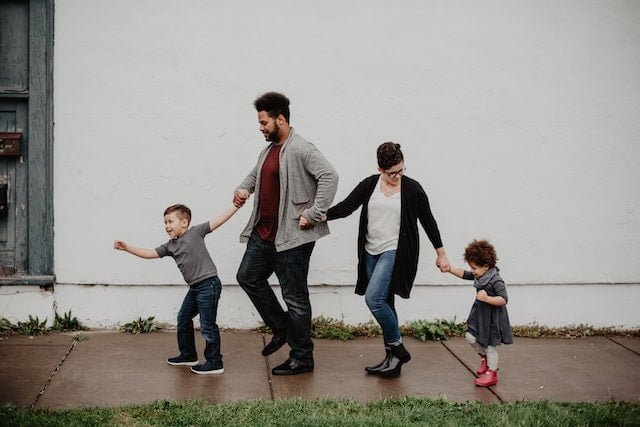
The loss of a loved one is never easy.
Experiencing grief and loss is an inevitable component of our human existence. Losing a family member is emotionally and mentally taxing, regardless of whether it is sudden or expected. The bereavement can lead to family members feeling adrift and helpless, wondering how to handle the situation and move forward. In this blog post, we delve deep into strategies for managing grief and coping with the loss of a family member in an explorative and informative manner. We provide ample examples, scenarios, and background information for a comprehensive understanding of the topic. Our discussions, sprinkled with casual language, lend a comforting and intimate tone to our suggestions and recommendations. Through our elaborative elucidations, we aim to provide clarity and insight into the difficulties of managing and coping with the loss of a loved one.
- Allow Yourself to Grieve: When dealing with grief and loss, it’s important to start by giving yourself the space to grieve in your own way. Since everyone experiences grief differently, there’s no right or wrong way to feel. So, allow yourself to feel all the emotions that come with grief. Such emotions as sadness, anger, guilt, or confusion, are normal. Do not let any judgment or shame befall you. Take the time to cry, talk to others, and reflect on your loved one’s life. This process can be challenging, but it’s necessary to work through your emotions and begin to heal.
- Seek Support: Experiencing grief can be a challenging ordeal, and seeking support from others can serve as a much-needed lifeline. It is essential to reach out to those around us. This can be your family or friends, let them know how you feel. A professional counselor can also help you navigate the difficult emotions that come with grieving with their expertise and experience. Additionally, joining a grief support group can provide a valuable sense of community. This will give you the opportunity to connect with others who have gone through similar situations and understand your pain. By seeking support, we can effectively cope with our emotions and find a path towards healing and restoration.
- Take Care of Yourself: When you are experiencing grief, taking care of yourself becomes more important than ever. It’s crucial to prioritize your physical and mental wellbeing during this time. This involves not only eating healthy foods and getting enough sleep, but also engaging in fulfilling activities that make you feel happy and comforted. To alleviate stress and promote emotional healing, regular exercise and meditation practices can be enormously beneficial. Taking care of yourself can help you navigate the painful process of grieving and ultimately emerge stronger and more resilient.
- Be Patient with Yourself: Dealing with grief can be a challenging and complex process that requires time and patience. It is natural to experience a wide range of emotions, from profound sadness to anger, and to feel them intensely and unpredictably. It is essential to be kind to yourself during this journey and not to judge yourself harshly for what you are going through. Allow yourself to experience your emotions fully without suppressing or denying them. Don’t be afraid to seek support from others when needed. Grieving can be a rollercoaster of emotions, give yourself time to heal.
- Create Rituals and Traditions: When we experience the loss of a loved one, creating rituals and traditions can offer a meaningful and personal way to remember and honor them. You may find comfort in lighting a candle, creating a scrapbook or photo album filled with cherished memories, or planting a garden or tree in their name. These thoughtful gestures can provide a sense of solace and help you feel closer to your loved one even in their absence. By incorporating these rituals and traditions into your life, you can craft a unique and personal way to grieve, celebrate, and commemorate the special bond that you shared with them.
- Focus on the Positive Memories: Rather than solely focusing on the sorrowful feelings of loss during the grieving process, it’s essential to also acknowledge the happy memories and moments shared with the departed loved one. By recollecting and discussing positive experiences and stories with family members, it can be a cathartic and soothing experience that may aid in one’s healing process. This may mean sharing memorable anecdotes, discussing past adventures or travels, or reminiscing about the good times had with the loved one. By emphasizing and concentrating on positive memories, it’s easier to find comfort and peace during a difficult time of grief.
- Practice Self-Compassion: Experiencing grief can be an extremely difficult and draining emotional experience, and taking care of your emotional well-being is essential during this time. In order to truly take care of yourself, it’s important to practice self-compassion by treating yourself with kindness, empathy, and understanding. Instead of blaming or criticizing yourself for feeling a certain way, try to approach these feelings with gentleness and compassion. Give yourself enough time and space to heal, and acknowledge that it’s okay to hurt during this process.
- Be Open to Seeking Professional Help: If you find yourself struggling to cope with the pain of grief, it’s crucial to keep an open mind about seeking professional help. A licensed counselor or therapist has the expertise to provide you with the emotional support you need and guide you through the complex emotions that are a natural part of the grieving process. They can offer effective coping strategies and share their professional perspective to help you process your grief in a constructive and healthy way. Don’t hesitate to reach out for support during this difficult time.
- Honor Your Loved One’s Legacy: Dealing with the pain of losing a loved one can be unbearable, but by choosing to honor their legacy in meaningful ways, you can find solace and comfort. One way to do this is to continue their philanthropic work, volunteer in their name, or establish a scholarship or fund in their honor. By taking these actions, you are commemorating their impact on the world and ensuring that their memory lives on beyond their physical presence. This process can bring a sense of closure and healing to the grieving heart, while also inspiring others to continue the good work your loved one started. With a sincere dedication to preserving their legacy, you can transform your grief into a positive force that will help you to deal with the pain of loss and create something that will affect others for the betterment the world moving forward.
Conclusion:
Coping with the painful experience of loss and grief in a family can be a daunting task that requires time and patience. However, it is crucial to allow yourself to grieve and feel the emotions associated with loss. Seeking support, either from friends, family, or a professional counselor, can also help in dealing with the situation more effectively. Taking care of your own physical and emotional well-being is important too, as it allows you to be more resilient during the grieving process. Creating rituals or traditions to honor the memory of your loved one can also be helpful. These can be simple actions like lighting candles or setting a memorial place in your home, or more elaborate events that reflect the memory of your loved one. Remember, it is essential to be patient and kind to yourself as you go through the grieving process. It is okay to take the time needed to heal. While your loved one may no longer be here, they will never be forgotten. They remain with you in your heart and mind for all time, giving you the strength, wisdom and love to continue.









